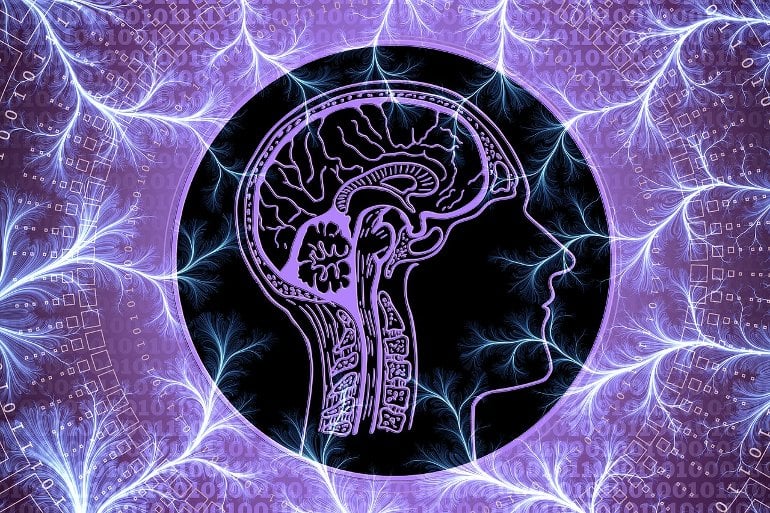Summary: Mirtazapine, an antidepressant commonly prescribed to treat dementia-associated agitation, is no more effective than a placebo and may increase mortality risks, researchers report.
Source: University of Plymouth
A drug used to treat agitation in people with dementia is no more effective than a placebo, and might even increase mortality, according to a new study.
The research, led by the University of Plymouth and published in The Lancet, has shown that antidepressant mirtazapine offered no improvement in agitation for people with dementia – and was possibly more likely to be associated with mortality than no intervention at all.
Agitation is a common symptom of dementia, characterised by inappropriate verbal, vocal or motor activity, and often involves physical and verbal aggression. Non-drug patient-centred care is the first intervention that should be offered but, when this doesn’t work, clinicians may move to a drug-based alternative.
Antipsychotics have proven to increase death rates in those with dementia, along with other poor outcomes, and so mirtazapine has been routinely prescribed. This study was designed to add to the evidence base around its effectiveness.
Funded by the National Institute for Health Research (NIHR), the study recruited 204 people with probable or possible Alzheimer’s disease from 20 sites around the UK, allocating half to mirtazapine and half to placebo. The trial was double-blind; meaning that neither the researcher nor the study participants knew what they were taking.
The results showed that there was no less agitation after 12 weeks in the mirtazapine group than in the control group. There were also more deaths in the mirtazapine group (seven) by week 16 than in the control group (only one), with analysis suggesting this was of marginal statistical significance.

Lead researcher Professor Sube Banerjee, Executive Dean of the Faculty of Health and Professor in Dementia at the University of Plymouth, explained why the results were so surprising, but important.
“Dementia affects 46 million people worldwide – a figure set to double over the next 20 years. Poor life quality is driven by problems like agitation and we need to find ways to help those affected,” he said.
“This study shows that a common way of managing symptoms is not helpful – and could even be detrimental. It’s really important that these results are taken into account and mirtazapine is no longer used to treat agitation in people with dementia.
“This study has added important information to the evidence base, and we look forward to investigating further treatments that may help to improve people’s quality of life.”
About this dementia research news
Author: Amy McSweeny
Source: University of Plymouth
Contact: Amy McSweeny – University of Plymouth
Image: The image is in the public domain
Original Research: Open access.
“Study of mirtazapine for agitated behaviours in dementia (SYMBAD): a randomised, double-blind, placebo-controlled trial” by Sube Banerjee. The Lancet
Abstract
Study of mirtazapine for agitated behaviours in dementia (SYMBAD): a randomised, double-blind, placebo-controlled trial
Background
Agitation is common in people with dementia and negatively affects the quality of life of both people with dementia and carers. Non-drug patient-centred care is the first-line treatment, but there is a need for other treatment when this care is not effective. Current evidence is sparse on safer and effective alternatives to antipsychotics. We assessed the efficacy and safety of mirtazapine, an antidepressant prescribed for agitation in dementia.
Methods
This parallel-group, double-blind, placebo-controlled trial—the Study of Mirtazapine for Agitated Behaviours in Dementia trial (SYMBAD)—was done in 26 UK centres. Participants had probable or possible Alzheimer’s disease, agitation unresponsive to non-drug treatment, and a Cohen-Mansfield Agitation Inventory (CMAI) score of 45 or more. They were randomly assigned (1:1) to receive either mirtazapine (titrated to 45 mg) or placebo. The primary outcome was reduction in CMAI score at 12 weeks. This trial is registered with ClinicalTrials.gov, NCT03031184, and ISRCTN17411897.
Findings
Between Jan 26, 2017, and March 6, 2020, 204 participants were recruited and randomised. Mean CMAI scores at 12 weeks were not significantly different between participants receiving mirtazapine and participants receiving placebo (adjusted mean difference –1·74, 95% CI –7·17 to 3·69; p=0·53). The number of controls with adverse events (65 [64%] of 102 controls) was similar to that in the mirtazapine group (67 [66%] of 102 participants receiving mirtazapine). However, there were more deaths in the mirtazapine group (n=7) by week 16 than in the control group (n=1), with post-hoc analysis suggesting this difference was of marginal statistical significance (p=0·065).
Interpretation
This trial found no benefit of mirtazapine compared with placebo, and we observed a potentially higher mortality with use of mirtazapine. The data from this study do not support using mirtazapine as a treatment for agitation in dementia.
Funding
UK National Institute for Health Research Health Technology Assessment Programme.






